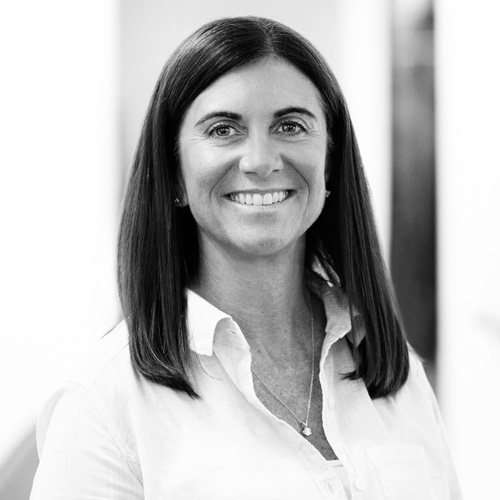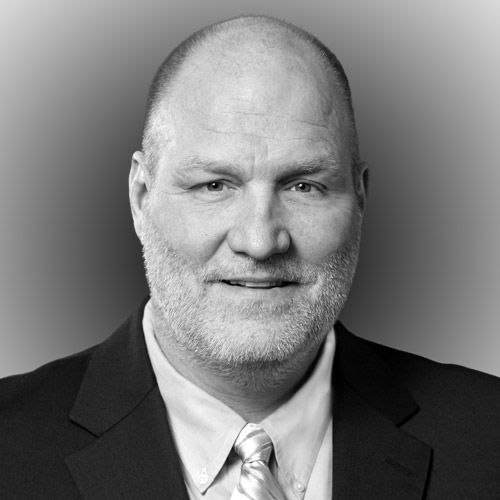If you want to get an idea of what Dave Wilson does for Mutual of Enumclaw, how you ask him is paramount. He’ll open up more if asked how he spends his day as the vice president of information technology and chief information officer at the Enumclaw, Washington-based insurance company. Mutual of Enumclaw works exclusively with local independent agents to provide coverage for individuals, families, farms, and business.
MUTUAL OF ENUMCLAW’S FARMING ROOTS
More than a century ago, farmers in Enumclaw, Washington, gathered to form the Farmers’ Mutual Insurance Company in 1898. The group’s egalitarian business philosophy required each member to split the costs equally to cover any losses or misfortunes.
The first agent, S.L. Sorenson, traveled between farmhouses on horseback to recruit members, oftentimes staying overnight and sharing a meal with the residents. It fostered a spirit of community that persists to this day.
Since the 1940s, the company has extended its insurance coverage from local farms to families and businesses in Oregon, Idaho, Utah, and Arizona.
“There’s a much more involved answer,” Wilson says. “My interests are about business—not technology—and I spend my day talking with a lot of people across the business. I’m trying to make sure that my team is engaged in a way that gets the customers what they need.”
The end result is the same: Wilson is a leader, and it shows in his team-building philosophy. In a tech-centric environment, it can be tempting to go with the best and brightest hires, but Wilson wants more than that: he wants team members that are also nice. “The reality is, quickly delivering technology solutions is complicated; it requires intense collaboration and sharing of information and many hands doing the lifting,” he says. “People who don’t want to be part of that are just not a good fit.”
Wilson puts such an emphasis on team chemistry because he believes a team that gets along with one another will have a better chance of producing the best outcome. And producing results is what Wilson is all about; throughout his career, he believes the places he most fondly remembers are where he was happy and productive.
“I got the feeling that I was really contributing and making a difference,” Wilson says. “I enjoyed the people I worked with and I was challenged by them to bring my A-game.”
Wilson believes this is a key aim of leadership: to create ownership over outcomes and to remove obstacles that prevent individuals from contributing to the team. “High-performing teams have to be built with high-performance individuals, but throw in arrogance and distrust and you won’t have an effective team,” Wilson says. “I want to have a team that impresses everyone who works with them, and that means it’s important to pay attention to team dynamics.”
One of the biggest responsibilities any team leader has is to keep the teams motivated. For Wilson, he finds recognition is one of the best ways he can motivate his team. Recognizing a job well done might seem like an easy task, but as Wilson notes, there’s a challenge to it because people like to be recognized in different ways. Rather than just go with a default recognition method, Wilson keeps his ears open to get ideas of how his team members want to be praised for a job well done.
“Some want to be recognized publicly, some want a quick e-mail saying, ‘Thanks for coming up with that idea,’” Wilson says.
Wilson also feels recognition requires practice. “Last year I began to track every time I recognized someone. I’m talking about simple things—someone does something cool and I let them know, ‘Hey, I noticed that,’” he says. “This helped me see that there were many individuals well deserving of recognition, but because I didn’t work closely with them on a day-to-day basis I was missing the chance to tell them ‘thank you.’ I learned I needed to get better at seeing individual contributions.”
Wilson’s team-oriented approach works well for his group’s success, but it plays a big part in the company’s overall success, too. When Mutual of Enumclaw decided its focus was going to be service, it adopted a data-driven approach to focus the efforts of teams across the company. It began by identifying the key measurements of member and agent loyalty. The company then implemented a “bottom up” execution framework wherein teams throughout the organization identify how they can make the biggest impact on company objectives and track their progress on public scorecards.
For example, when Mutual of Enumclaw realized it was behind in its technological capabilities for its agents, a team in IT was tasked with moving a particular technology-focused factor of the agency loyalty metric.
On the first try, the technology features anticipated to improve agent loyalty were implemented, but the scores didn’t increase.
At a traditional operation, the technology team might at this point have considered its job done. Since the team’s goal was based on a specific, measurable outcome, however, it had no choice but to see what was wrong. While working with Mutual of Enumclaw’s marketing team, it discovered there was a training and knowledge gap. In response, and in concert with an awareness effort led by the marketing department, the development team put together and delivered hundreds of webinars providing the training agents needed.
“The cool thing about focusing on the outcome-based metric was that the team actually owned the outcome,” Wilson says. “They owned changing the agents’ perception of value to the point where they got engaged in working with them, and once they started doing that, the scores started going up. I think it was a good lesson for the whole company because it made us all more committed to outcome-based goals.”
In July, Seattle Business magazine named Mutual of Enumclaw one of Washington state’s 100 Best Companies to Work, based on employee surveys. Leaders like Wilson help employees realize that just because they’re in insurance, it doesn’t mean their jobs can’t be fun.
“We’re forty miles outside of Seattle, and an insurance company, so you might expect it to have the makings of a sleepy, boring place to work,” he says. “In fact, I think visitors are quite surprised to find out how entrepreneurial and dynamic it is. It’s fun to be part of.”

